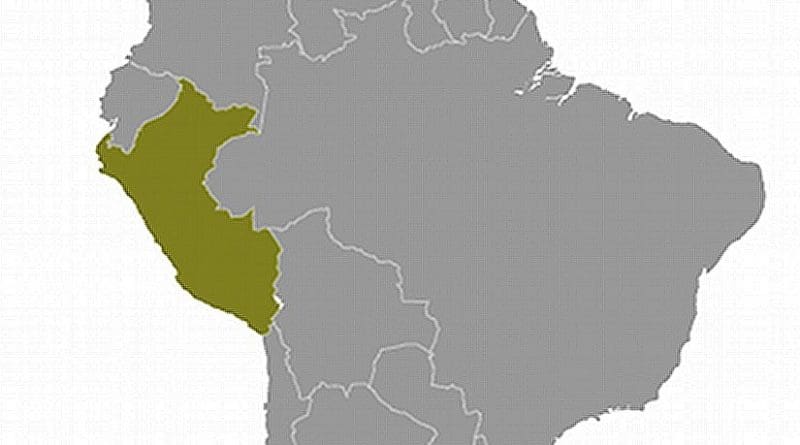Peru: Court Acquits Woman Accused Of Human Trafficking
A decision from the Criminal Court of the Supreme Court ratified the acquittal of the owner of a bar located in an illegal mining area who hired adolescents to work in the establishment to accompany customers to consume alcohol and occasionally engage in sexual activity with them.
In 2008, according to the General Attorney’s accusation, Elsa Cjuno Huillca took a 14 year old girl to work every day in her bar from 10:00 a.m. to 11:00 p.m. as what is commonly known as an “escort girl.” The Public Ministry presented a demand against Cjuno Huillca for the crime of human trafficking to the detriment of the minor, but in 2014, a court of the eastern department of Madre de Dios acquitted the accused under the argument that she was not aware that she was committing a crime despite the fact that the victim had declared that her work “consisted in accompanying the drinking customers” and that she did not know the amount of her salary because for each drink she served, she received a token, and her earnings depended on the number of tokens she had obtained by the end of the night.
Also, the young girl stated that the bar owner instructed her to make “come-ons”; that is, to engage in sexual intercourse with the clients, for which she would get paid a gram of gold.
After the decision of the court in Madre de Dios, the General Attorney’s Office filed an action of annulment that had to be heard and decided by the Criminal Court of the Supreme Court, chaired by judge Javier Villa Stein. The action of annulment stated that the crime of human trafficking under the modality of sexual and labor exploitation “is a fact that has been proven, making it fit to declare the sentence invalid.”
However, Villa Stein and the other four magistrates that made up the Criminal Court dismissed the action of annulment, saying that “to be an escort girl, and we understand this as a person who just drinks along with customers without having to perform any other activities, does not present itself as a type of work that would exhaust a worker” and to engage in sexual relations with the customers “was not the original intention of why she went to work at the bar, but only in one occasion the accused suggested the victim to do that. Thus this was an isolated event and not the reason why the accused took the minor to work at the bar.”
“For it to be deemed a sex trafficking crime, this has to be the primary reason for which a person is taken there from the start,” states the decision of the Criminal Court.
Unprotected victims
Although the decision came in January 2016, it was revealed in early September following complaints posted through the social networks. The Ministry of Women and Vulnerable Populations (MIMP) called the sentence as “dangerous and deplorable” and that it has elements that violate fundamental rights.
“The arguments to exonerate the accused, part of the court ruling, establish a dangerous legal precedent to deal with sexual or labor exploitation of children and adolescents in the future, by requiring that the trafficker had made their intention clear to the victim as a condition to legally file a demand,” the MIMP points out in a statement. “This is a precedent for impunity in similar and future cases in which the trafficker will not be imposed a sanction and thus leaving unprotected the children and adolescents in our country.”
For Carmen Barrantes, a lawyer and researcher for the humanitarian organization Terre des Hommes Suisse, the decision actually legitimizes trafficking because “none of the young girls from Cusco or Huancavelica who they recruit to work in the bars are told from the start that they are going to be sexually exploited; this does not happen anywhere in the world.”
“These girls are offered work opportunities as waitresses or cashiers; they are never told that they will be escorts girls or that they will have to drink liquor; this comes later on, after they cannot refuse and say no,” she said to the La República newspaper, adding that the court decision is not in accord with Peruvian law and international treaties dealing with human trafficking. “The law states that just the act of recruiting or luring one person constitutes the crime of human trafficking.”
So far, the National Council of the Judiciary, the entity in charge of the selection, appointment, evaluation, ratification and of destitution of judges and prosecutors in Peru, made public that an investigation has been opened against the judges who handed down the sentence.
According to the Walk Free Foundation, based in Australia and dedicated to the fight against modern slavery, Peru is the country in third place in Latin America, after Mexico and Colombia, with the highest number of trafficking victims. Between January and September of this year, the National Police recorded 243 trafficking complaints, allowing law enforcement to rescue 957 victims, of which 919 were women and 115 children and adolescents.

